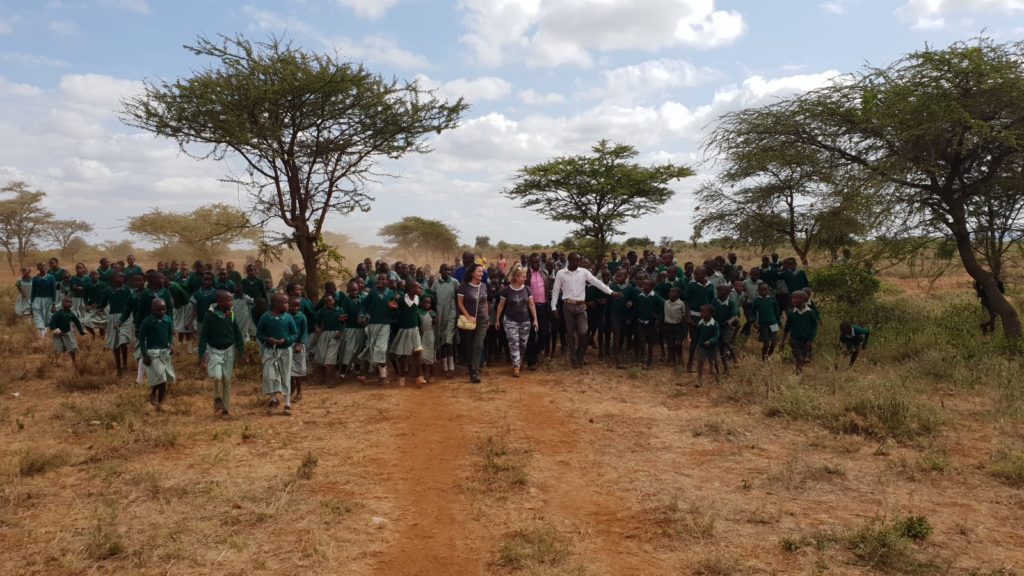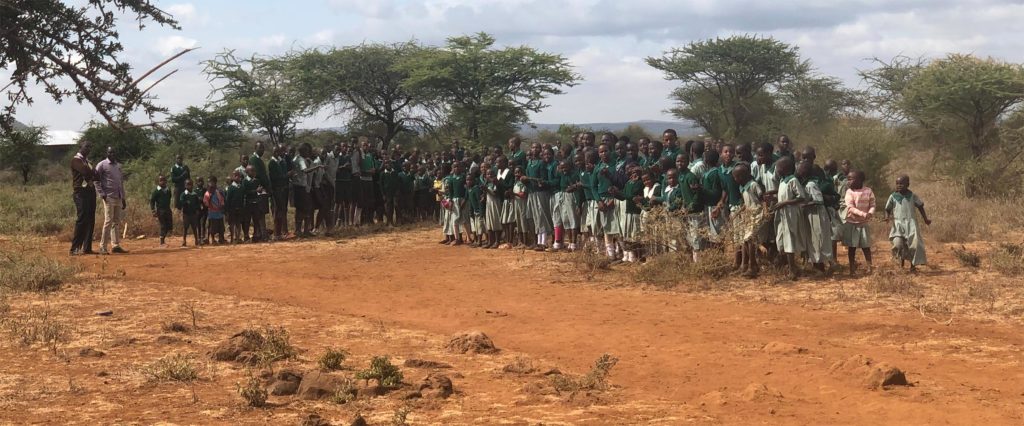Susi and Manu go to Africa Part IIIFeatured
On June 30th, 2019 we were ready to go on another adventure. Susi and Manu left towards Zurich airport in order to catch the by now familiar flight to Nairobi, Kenya. As usual, we were travelling light with a mere 120 kg of luggage evenly distributed in four suitcases.
Our suitcases were filled with lots of donated clothes, wool, crocheting needles, colours and drawing blocks and about 100 t-shirts featuring the WeCare-Logo surrounded by depictions of the four extracurricular activities we want to launch for the girls at the NASARU- Learning Centre for Masai Girls.
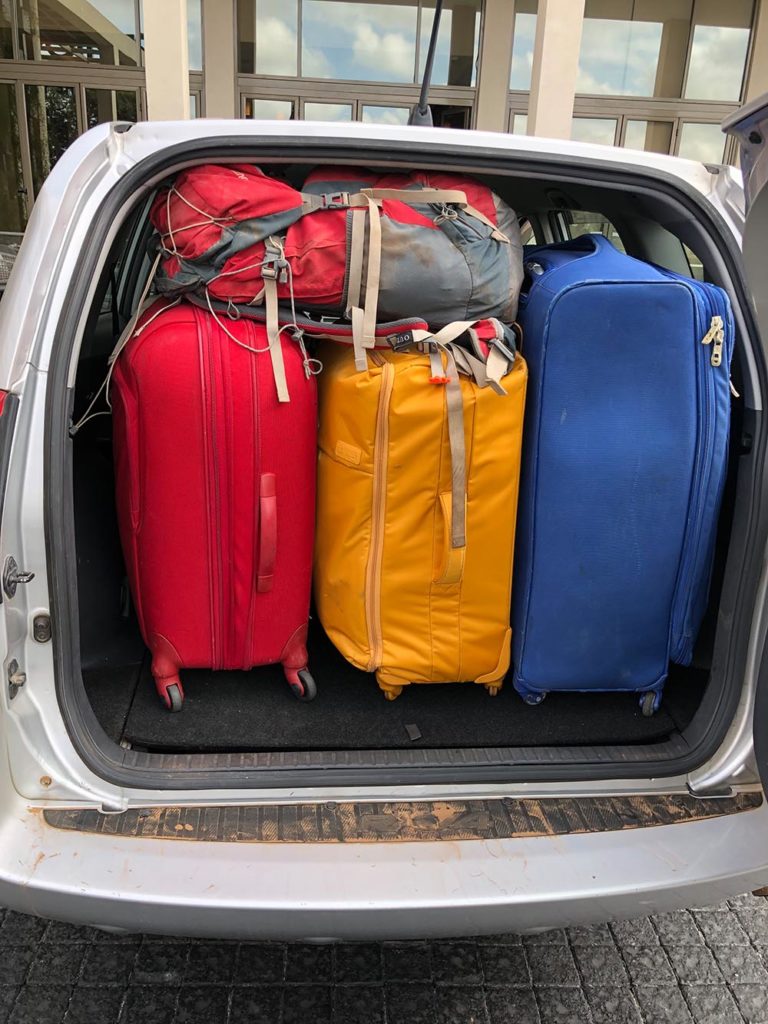
Travelling light 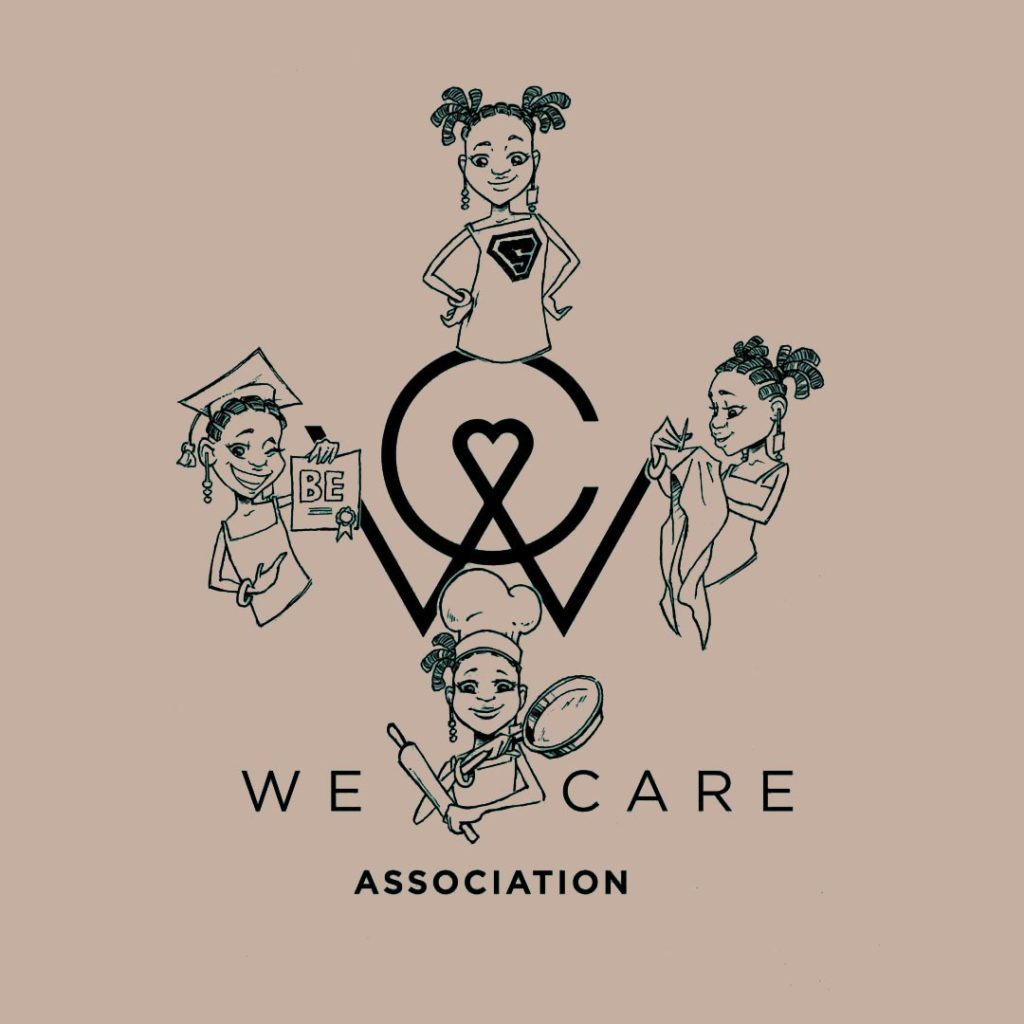
We arrived in Nairobi in the evening and spent a quiet night in a hotel close to the airport. Early in the morning of the following day Giorgio came to pick us up and we left towards Kitengela where we had a meeting with Agnes Gitonga whom I had met via Facebook thanks to Elizabeth Leuenberger – Kajs. I was very much looking forward to this meeting.
On our way there we stopped at a big supermakret to get some gifts. We bought a big carton of apples and oranges, 50 kg of rice, sugar, toilet paper and buiscuits for « Agnes’ children ». We also got a thermos for chai and for chapati for Agnes from Iloshon who last year had indicated that this was what she expected us to bring her. Whilst browsing through the household department we noticed two heavily armed men and Giorgio -kindly enough- reminded us that supermarkets as well as churches were the preferred targets for terrorist attacks in parictular when owned by Somalis as was the case with the supermarket we were in. As this news had a very soothing effect on us, we tried to leave the supermarket as soon as possible.
With a rather full car we reached Kitengela. Agnes Giltonga had told me that she was in Noonkopir and that we should call her upon arriving in the vicinity. As we were lucky enough to have an internet connection in this very moment we were guided by Google Maps. We left the main road and came onto a dust road and the area became less and less welcoming. I called Agnes and with the help of a passer-by we managed to establish where we were. Agnes told us to meet her at the mosque. We only had to ask about five times in order to get to where Agnes was expecting us. She then guided us to her centre which actually consists of two different parts: On the one hand there is the Gibon Women Empowerment centre where women are being trained to be tailors and -above all- learn to develop self-esteem. On the other hand it is a school for grades 1 to 3 and a dormitory for up to 100 children. These children all come for extremely underprivileged families with parents who cannot afford to pay for public school. The small children already have to babysit their younger siblings and therefore cannot go to school.
In this really very impoverished environment there is a very positive atmosphere and you can sense change. You can literally feel the motivation to change which has been planted by powerhose Agnes in the heads of the women and children present. She is a wonderful role model for all the women in the centre and with her incredible determination she has managed to plant the seed for a very important change. We would like Agnes to come to Iloshon to convince our Nasaru Girls how important change is. We believe that Agnes as a local and « one of them » will have much more impact than a Muzungu (white foreigner) who does not have a clue about the way they live.
Moreover, we are striving to enter into a collaboration with one of the tailors trained at Agnes’ Center to come and teach our girls at the NASARU Learning Centre for Girls.
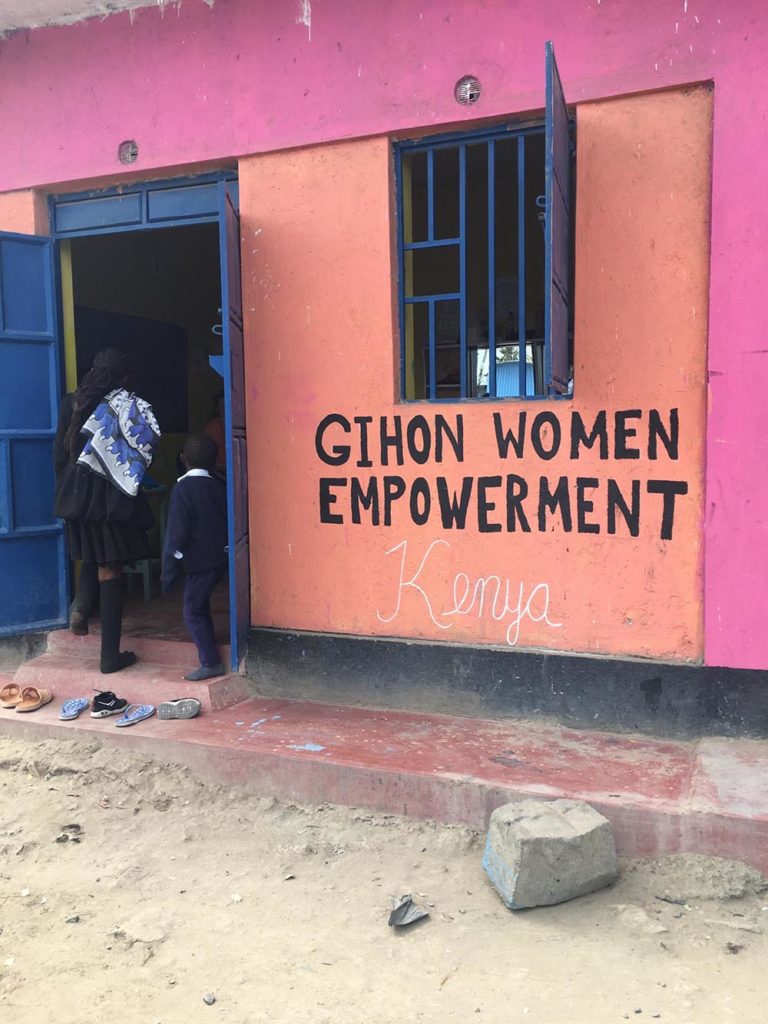
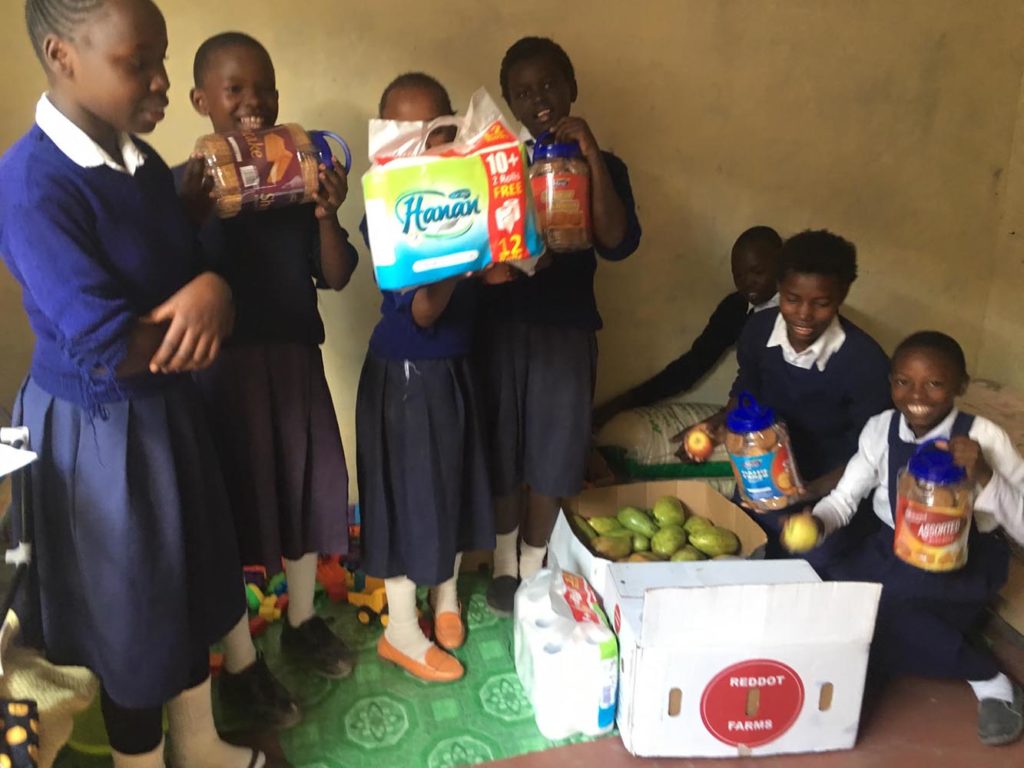
Handing over the gifts 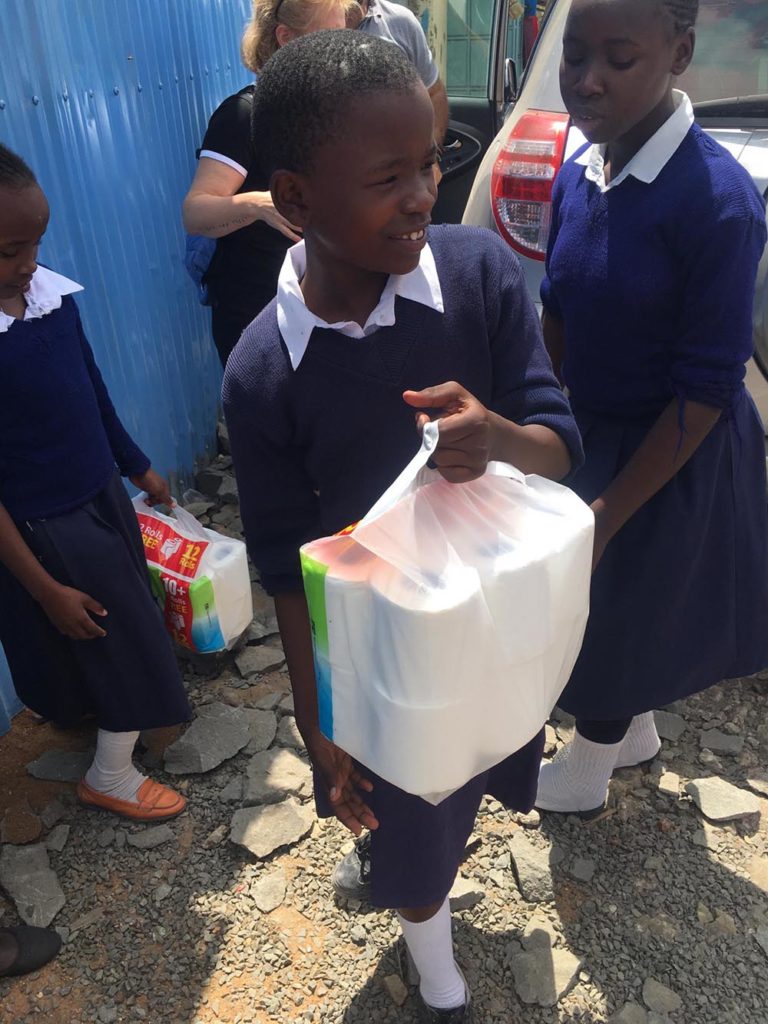
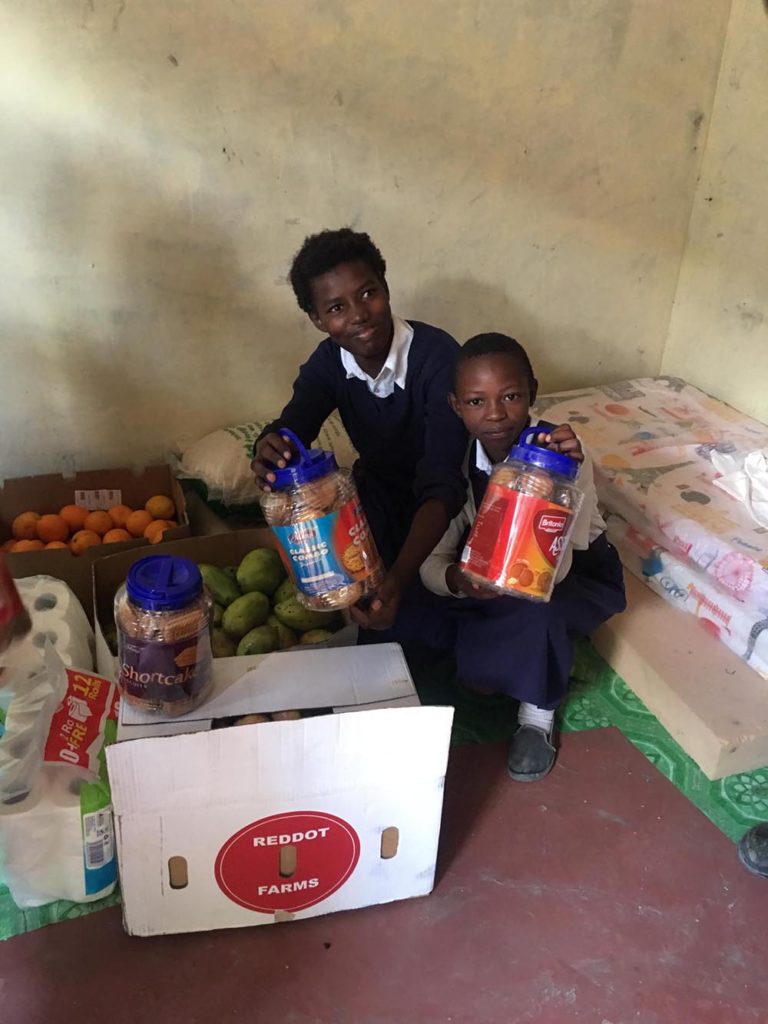
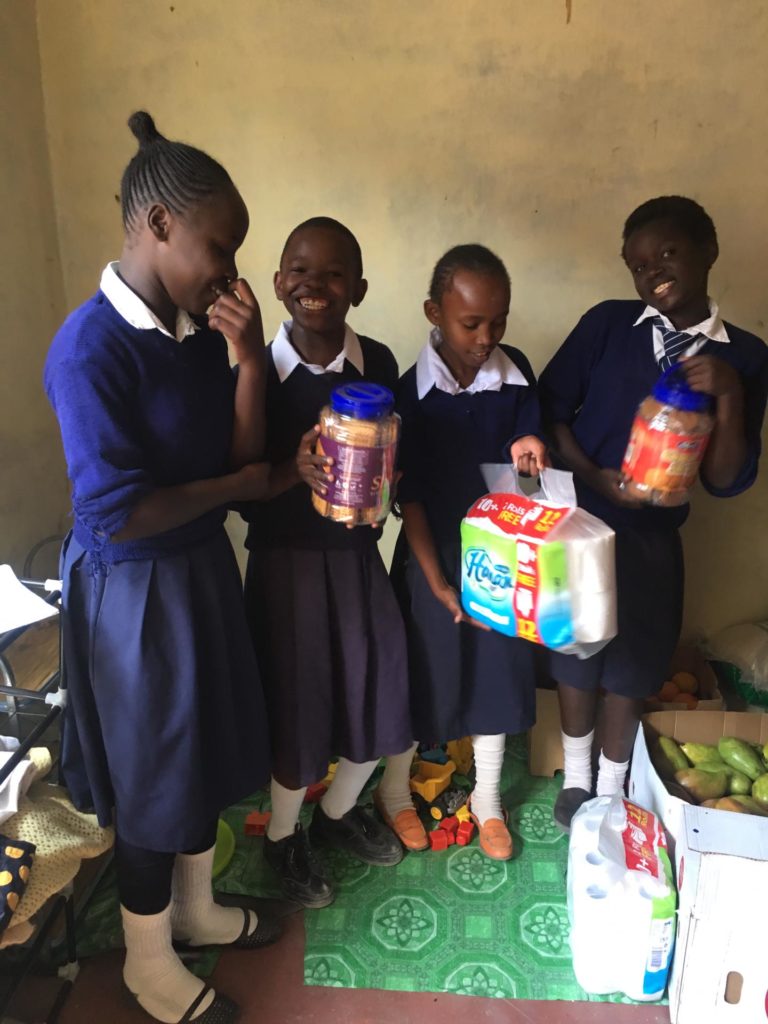
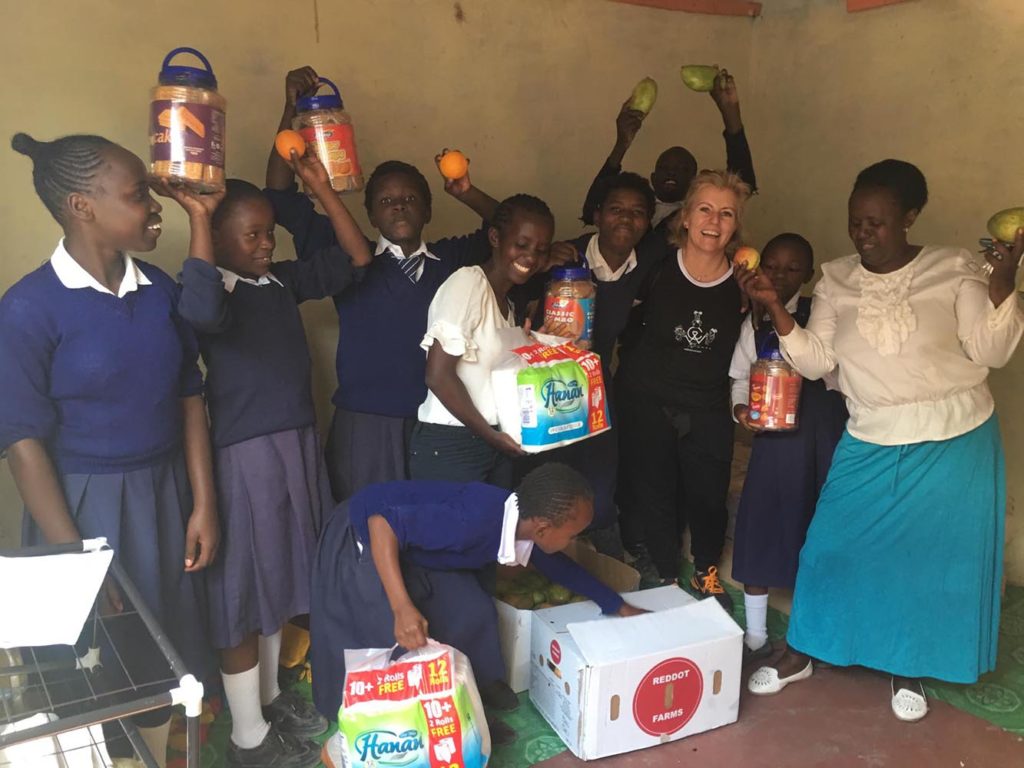
The kids are happy with their gifts
After an emotional goodbye and our promise to come back we headed towards the next library to order the promised schoolbooks for Agnes. The librarian was very competent and promised to order them right away.
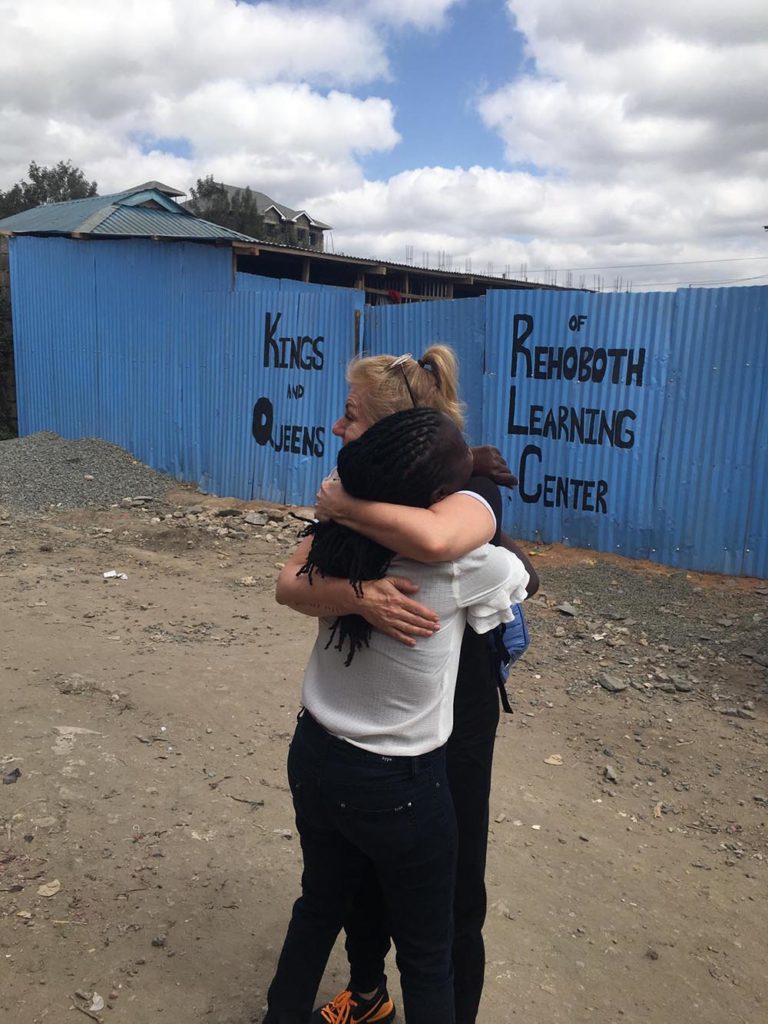
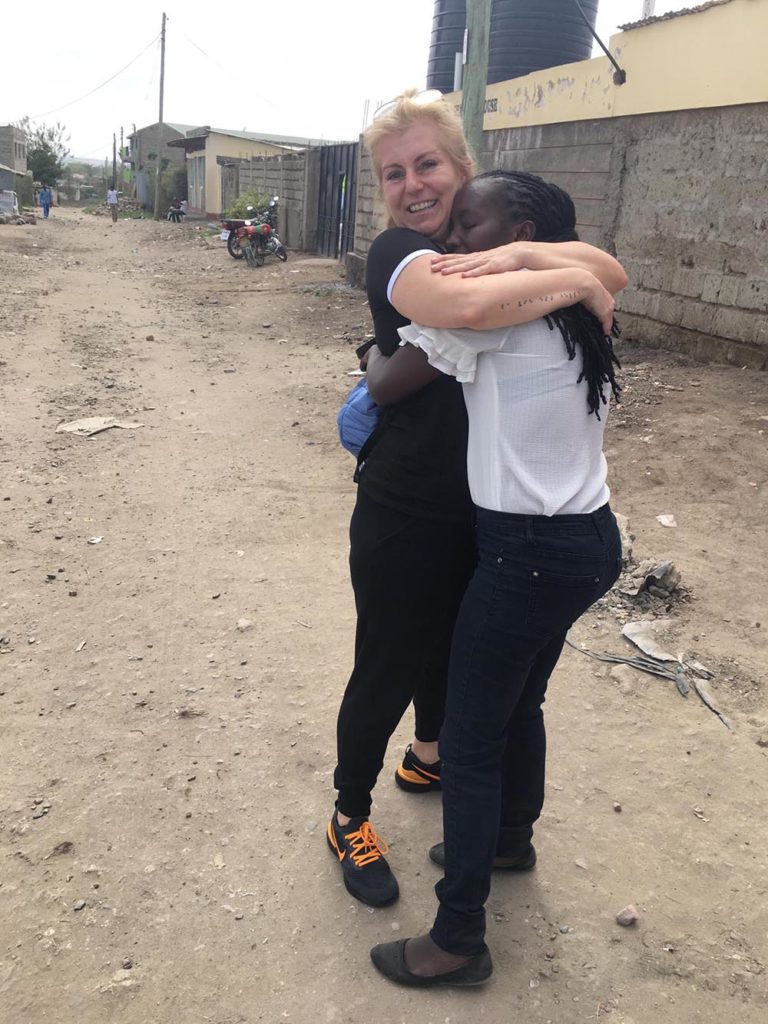
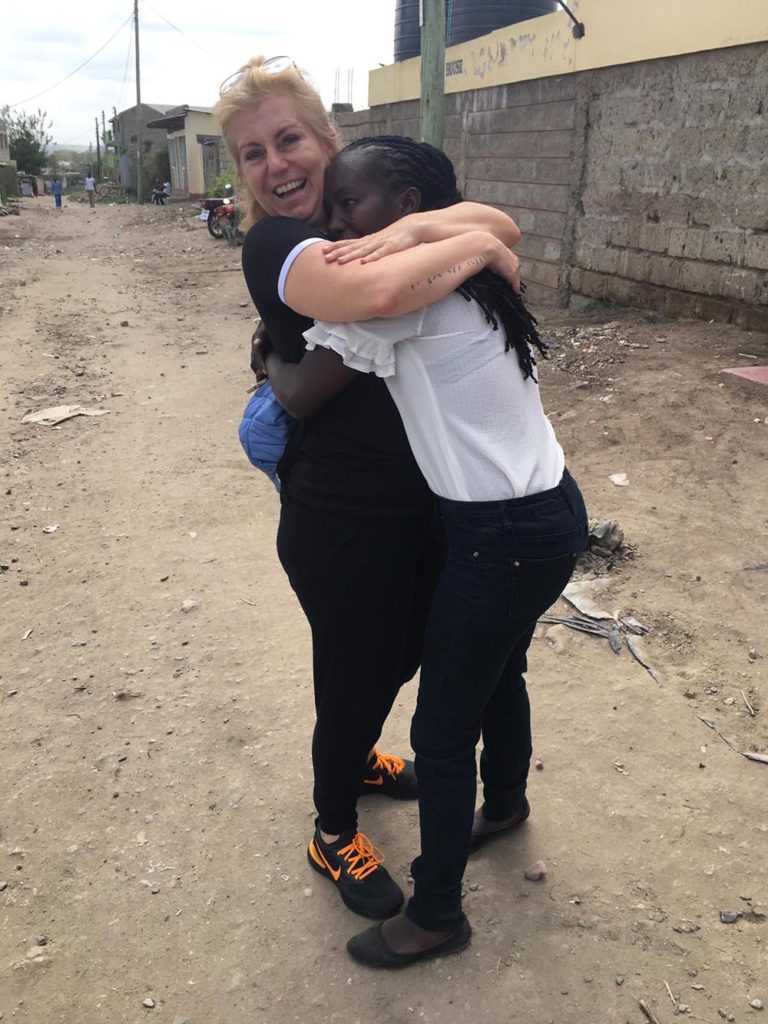

Agnes, you are not alone!
Our next stop was Olpirikata where we got a very clear demonstrations of one of the major problems: The community had been waiting for us and therefore was more than ready for our first meeting. The meeting started with a short prayer and then it was the turn of the village elder who did not only welcome us but made it clear that there were a number of urgent problems within the village that we were supposed to solve. Among these problems mentioned were: The farm’s neighbour sent her goats into the vegetable garden to graze the vegetables. A woman from the women’s cooperative had sold her jewellery in a different spot than was agreed upon. The lack of a doctor when they had already scared away two doctors. When it was my turn to address them I told them that we consider ourselves as project incubators and we accompany them until they are «grown-ups». Then the local population has to take over and assume the responsibility for the projects themselves comprising the solution of all problems that may arise.
Subsequently we went to pay a visit to all our projects to see their progress. The result was a little sobering but in all fairness we have to admit that new beginnings are difficult everywhere and there are no problems only solutions. We called on the local project owners to solve their problems on their own but promised to be at their disposal for any kind of input they might need.
We provided the project owners with clearly defined, quantitative objectives/goals and asked them to provide regular feedback on the project progress.
In this context, I had a very conclusive and interesting talk with three young Masai men. When asked about their visions for their future on of them wanted to become the boss of a big company and the other two dreamed of being future shop owners. Only one of the two future shop-owners had a very clear vision of what he wanted to sell in his shop, namely spare parts. The other man did not have any clue what he wanted to do with a shop. There is need for a lot of change, above all in the people’s heads!
The same evening a young Italian volunteer named Rosaria joined our little group. Rosaria will spend the next couple of weeks to visit the different villages together with Giorgio and to treat the children’s skin with soap as they very often suffer from a fungus that can apparently be cured rather easily. They will also wash the childrens’ eyes with a saline solution in order to prevent or to ease eye infections caused by the fine dust of the Savannah.
On the next morning we left Olpirikata in direction Iloshon. The atmosphere there was overwhelming and we were welcomed in grand Masai style as the excitement and want for change was tangible.

